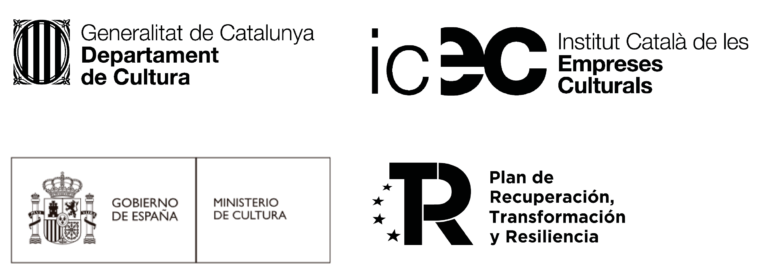He returned with bags of red soil and waste – Lionel Sabatté

He returned with bags of red soil and waste – Lionel Sabatté
Lionel Sabatté,Time, memory and trace
RocioSantaCruz Gallery is proud to present Lionel Sabatté’s first solo exhibition in Spain on the occasion of the 10th anniversary of the Barcelona Gallery Weekend.
For this unique show, Lionel Sabatté drew inspiration from the lands of the Ebro in the south of Catalonia. The region’s cave paintings and landscapes have given birth to a collection of sculptures, paintings, photographs, and drawings of captivating beauty, all created expressly for this occasion. His paintings, composed with Lascaux cave pigments, exude an extraordinary brute force, while his sculptures, reminiscent of mammoths, bison, oxen, and wild boars, seem to breathe new life into parietal art.
The masterfully rendered animal drawings are full of life, both in the line and in the method of oxidation he uses to create them. Time, in the form of a chemical process, brings them to life.
The beauty of his depictions of eels and batrachians rivals that of birds, while the enigmatic poussiérographies capture the magic of the Ebro delta. Between prehistory and the contemporary world, the traces of time, present in both forms and materials, irrigate and give life to Lionel Sabatté’s works.
Over the last two decades, Lionel Sabatté has made his mark on the French contemporary art scene with the strength of his work. He pioneered as a sculptor, creating unforgettable pieces from small packets of dust. In Catalan, ”borra” and in Spanish and English, called ‘conejito de polvo”; these aggregates are called “mouton de poussière” (dust sheep) in French. However, Sabatté, renouncing the immediate and literal reference that characterises his work, depicts these animals neither as rabbits nor as sheep but as wolves.
Beyond the overwhelming visual impact of these works, the artist invites us to reconsider our perception of materials in art. Paradoxically, while dust is seen as a fragile, trivial, and devalued substance, Sabatté has transmuted it into an artistic material in its own right, creating works of astonishing permanence and beauty. He restored dust to its nobility, linked to the trace it contains of the passage of time.
In this way, Sabatté aligns himself with a dual legacy that connects him to Marcel Duchamp and Man Ray. Let us recall Man Ray’s photograph in 1920 of Duchamp’s iconic work, The Large Glass, which had been left in his studio for months, allowing it to be covered by a fine layer
of dust. Instead of cleaning it off thoroughly, Duchamp decided to preserve some of the dust
on the surface, integrating it into the work. Thanks to this intervention, Man Ray was able to photograph what he entitled “Élevage de poussière” (“Dust breeder”), capturing not only the physical presence of the material but also the imprint of time. This act of immortalising dust as a
trace of time becomes a fundamental connection point with the work of Lionel Sabatté, who uses ephemeral materials to explore memory, traces and the beauty of the transient.
Although Sabatté has established himself as a sculptor, he is also an exceptional painter, practises drawing with equal skill and has recently integrated photography into his artistic approach. This medium, in particular, allows him to set the trace in two forms: through the image of the represented subject and through the pigments that reveal it, which bear the memory of what they reveal through his daunting poussiérographies.
Alain Quemin
*Thanks to the Ceysson & Bénétière Gallery and the curatos Alain Quemin.
PRESS
Explorant la història i la innovació a la Barcelona Gallery Weekend. Laia Marín, El Temps de les Arts. 20.09.2024
- https://tempsarts.cat/arts-visuals/explorant-la-historia-i-la-innovacio-a-la-barcelona-gallery-weekend/
Exhibition held as part of the Barcelona Gallery Weekend 2024
⎯⎯
Con el apoyo de / Amb el suport de / With the collaboration of
